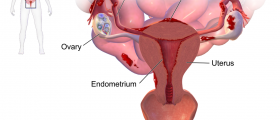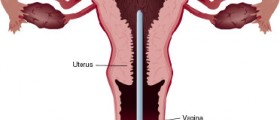
Symptoms of Endometritis include fever, vaginal bleeding or discharge and pain in the lower pelvic region. Risk factors of Endometritis include c-section birth, prolonged labor with multiple vaginal exams and prolonged rupture of membranes and treatment usually consists of broad-spectrum antibiotic medications. Chronic endometritis and infertility can lead a woman to experience difficulty when trying to become pregnant.
Acute Endometritis is chronicled by an infection most commonly a result of staphylococcus or streptococcus. Some of these infections can be the result of compromised abortions, retaining placental fragments after delivery, delivery, dirty medical instruments or catheterization which can introduce bacteria into the reproductive organs. Chronic endometritis is characterized by plasma cells in the tissue and the most common reasons are Chlamydia and pelvic inflammatory disease. Women that suffer with chronic Endometritis will oftentimes have endometrial or cervical cancer.
Chronic endometritis symptoms can include a blood stained vaginal discharge, lower abdominal pain and the disease can take anywhere from 2-4 weeks to develop. Chronic endometritis and infertility are something a woman should ever take for granted if she desires to become pregnant at some point in the future. The condition is not something that can go untreated without having serious side effects; it can cause severe pain and lead to infertility if not addressed with medical help. Once the condition has been diagnosed, there are many things a woman can do to manage the signs and symptoms and preserve fertility. When a woman experiences any type of health problem that could lead to infertility, early detection and diagnosis are extremely important.

















Your thoughts on this
Loading...